Ever find yourself staring at your computer screen at 3 PM, feeling like your brain’s wrapped in cotton? You’re definitely not alone. In our fast-paced world, maintaining sharp mental focus can feel like an uphill battle – especially when that afternoon brain fog kicks in. But what if I told you that the solution might be sitting right in your kitchen cabinet?
Herbal teas for focus have been helping people sharpen their mental clarity for centuries, long before energy drinks and synthetic nootropics hit the market. These natural remedies aren’t just trendy wellness fads; they’re backed by both ancient wisdom and modern science. From traditional Chinese medicine to European folk remedies, cultures worldwide have turned to specific herbs to enhance cognitive function and mental performance.
The beauty of using herbal teas lies in their gentle, sustained approach to cognitive enhancement. Unlike the jittery rush you get from coffee or energy drinks, these botanical brews work with your body’s natural rhythms to support mental clarity without the crash.
What Makes Herbal Teas Effective for Mental Clarity?
Let’s dive into the science behind why these plant-based brews actually work. Herbal teas for focus contain a cocktail of bioactive compounds – think antioxidants, neuroprotective substances, and calming phytochemicals that work together to support your brain health.
These aren’t just pretty-tasting waters. Research shows that many herbs contain compounds that can cross the blood-brain barrier, directly influencing neurotransmitter activity and cerebral blood flow. For instance, some herbs increase acetylcholine production (crucial for memory and learning), while others enhance GABA activity to reduce mental chatter and improve concentration.
The consistent intake of these compounds through regular tea consumption can lead to cumulative benefits. Unlike synthetic supplements, herbal teas provide a complex matrix of nutrients that work synergistically – meaning the whole is often greater than the sum of its parts.
Top 5 Herbal Teas That Actually Boost Focus
Ginkgo Biloba Tea: The Memory Enhancer
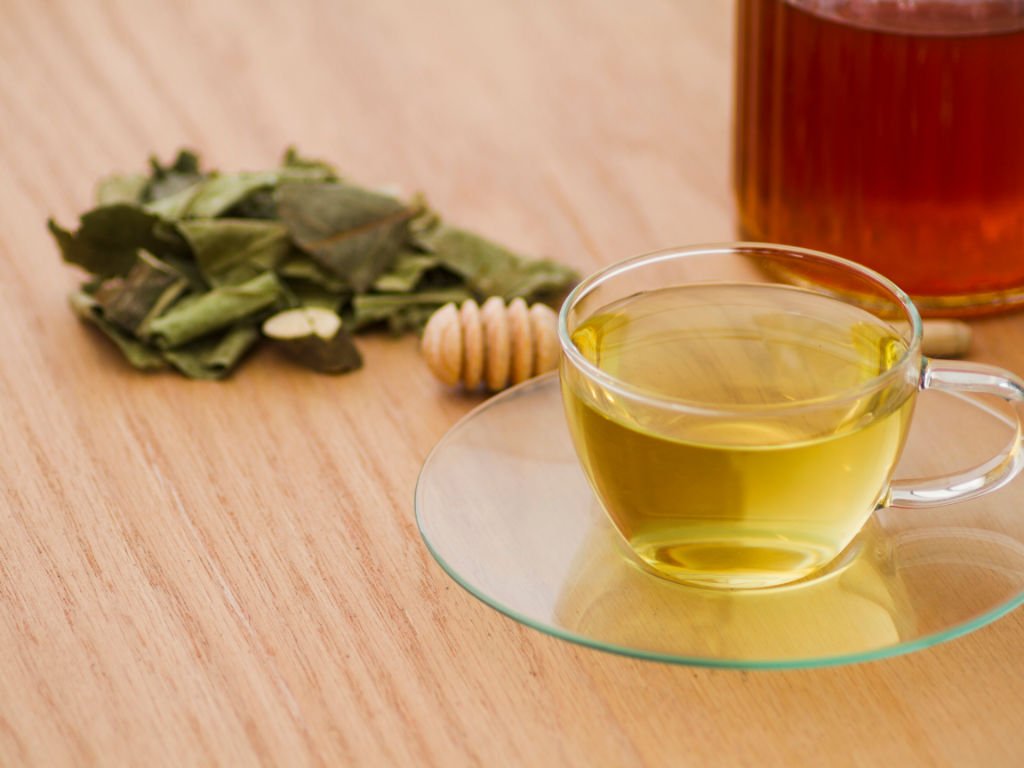
If there’s a superstar in the world of cognitive herbs, ginkgo biloba takes the crown. This ancient tree species has been around for millions of years, and its leaves pack a serious punch when it comes to brain health.
What makes ginkgo so special? It’s loaded with flavonoids and terpenoids – compounds that improve blood circulation to the brain and protect neurons from oxidative damage. Studies have shown that regular ginkgo consumption can enhance working memory, processing speed, and attention span.
The improved circulation isn’t just beneficial for your brain; it can also help with that sluggish feeling you get when you’ve been sitting at your desk too long. Better blood flow means better oxygen delivery, which translates to clearer thinking and sustained mental energy.
Rosemary Tea: The Aromatic Focus Booster
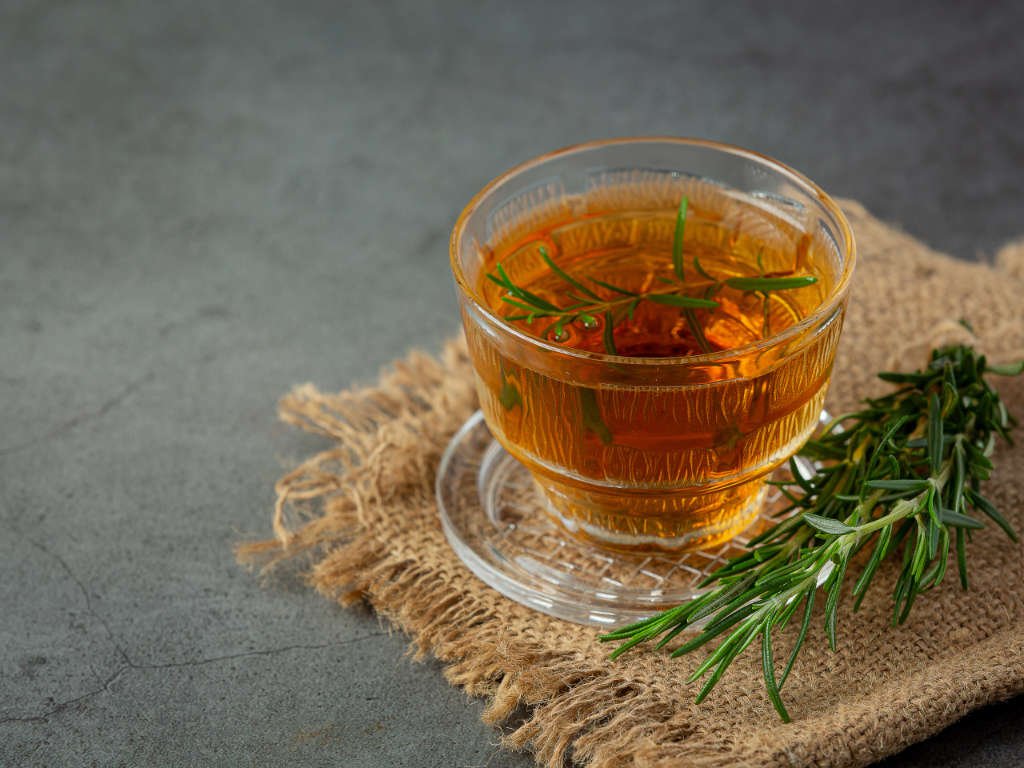
“Rosemary for remembrance” isn’t just a poetic phrase – there’s real science behind it. This fragrant herb contains cineole, a compound that’s been shown to significantly improve memory performance and cognitive speed.
What’s fascinating about rosemary is that you don’t even need to drink it to get some benefits. The aroma alone can enhance cognitive performance, but brewing it into tea gives you the full spectrum of its active compounds. Research has found that people who consumed rosemary tea showed improved long-term memory and increased alertness compared to those who didn’t.
The herb also contains rosmarinic acid, a powerful antioxidant that helps protect brain cells from inflammation and oxidative stress – two major culprits behind cognitive decline.
Peppermint Tea: The Natural Energizer
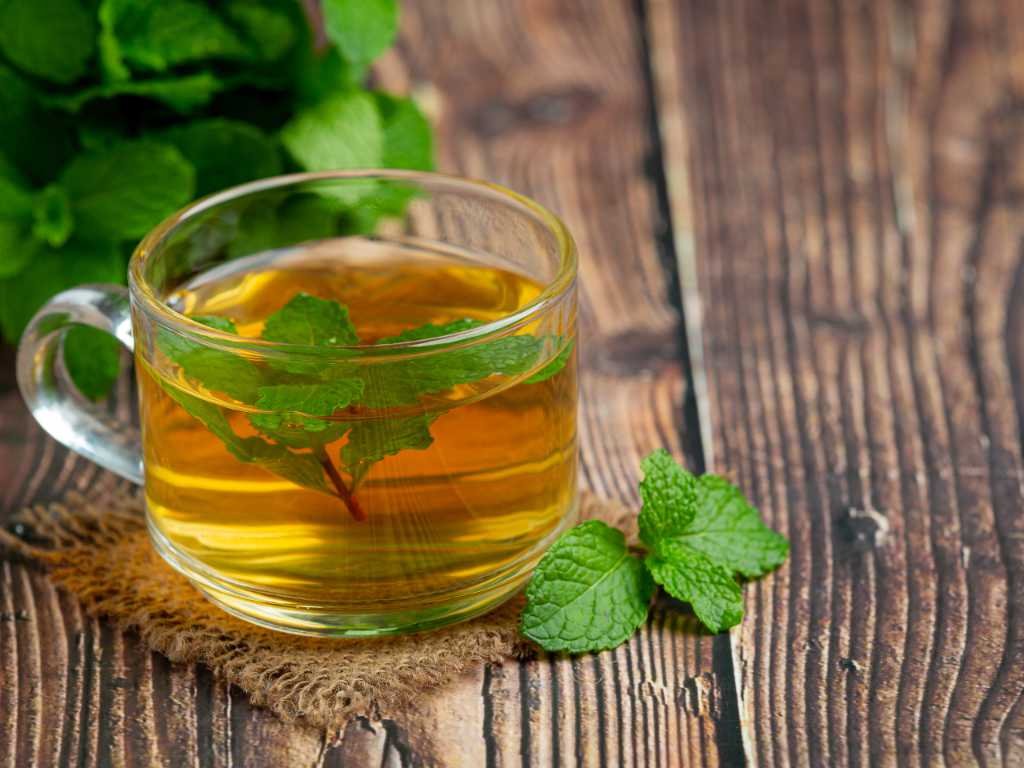
Don’t underestimate this common herb. Peppermint tea is like a gentle wake-up call for your brain, and university studies have proven its cognitive benefits. One notable study found that peppermint consumption improved both long-term memory and word recall significantly.
The menthol in peppermint has a cooling, invigorating effect that can help shake off mental fatigue. Unlike caffeine, which can sometimes make you feel anxious or jittery, peppermint provides clean, calm energy that doesn’t interfere with your sleep later.
Plus, let’s be honest – it tastes amazing and leaves you feeling refreshed. Sometimes the simple act of sipping something minty and aromatic is enough to reset your mental state and refocus your attention.
Green Tea: The Perfect Balance
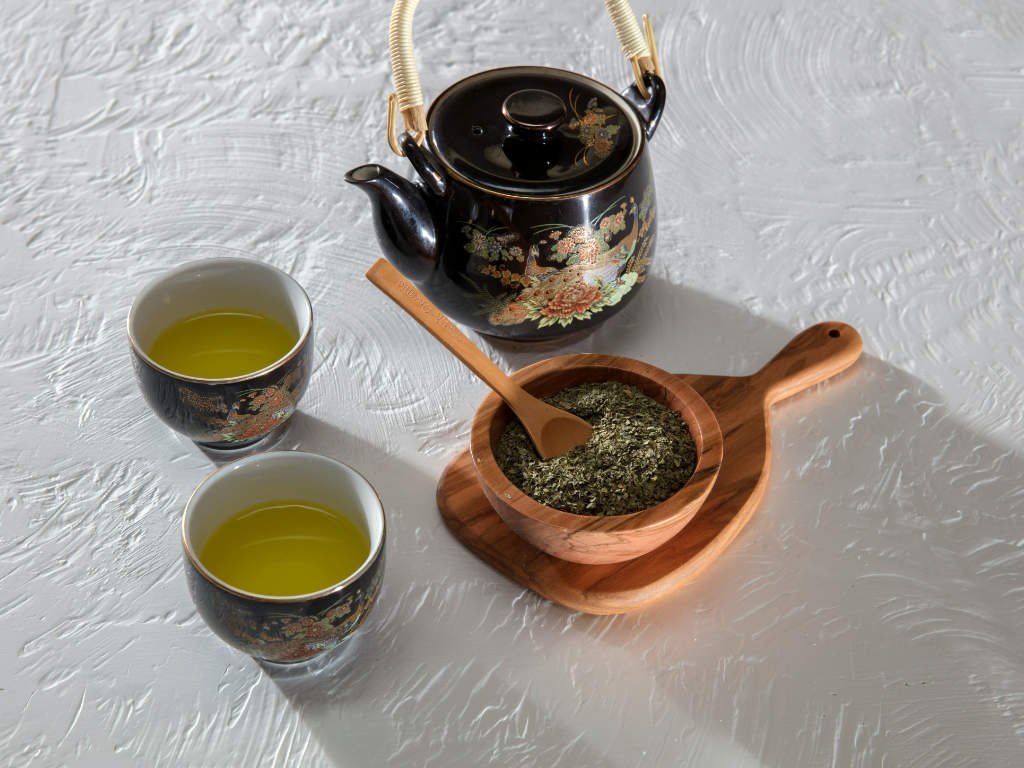
Here’s where things get really interesting. Green tea is unique because it contains both caffeine and L-theanine – a combination that creates what researchers call “calm alertness.” The caffeine provides the mental boost you need, while L-theanine prevents the jitters and promotes a state of relaxed focus.
This dynamic duo works by influencing your brain waves. L-theanine increases alpha wave activity, which is associated with a relaxed but alert mental state – think of how you feel during meditation or when you’re completely absorbed in a good book.
Research consistently shows that green tea drinkers have better attention spans, improved working memory, and enhanced cognitive flexibility. The antioxidants in green tea, particularly EGCG (epigallocatechin gallate), also provide long-term brain protection against neurodegenerative diseases.
Lemon Balm Tea: The Stress-Busting Clarifier
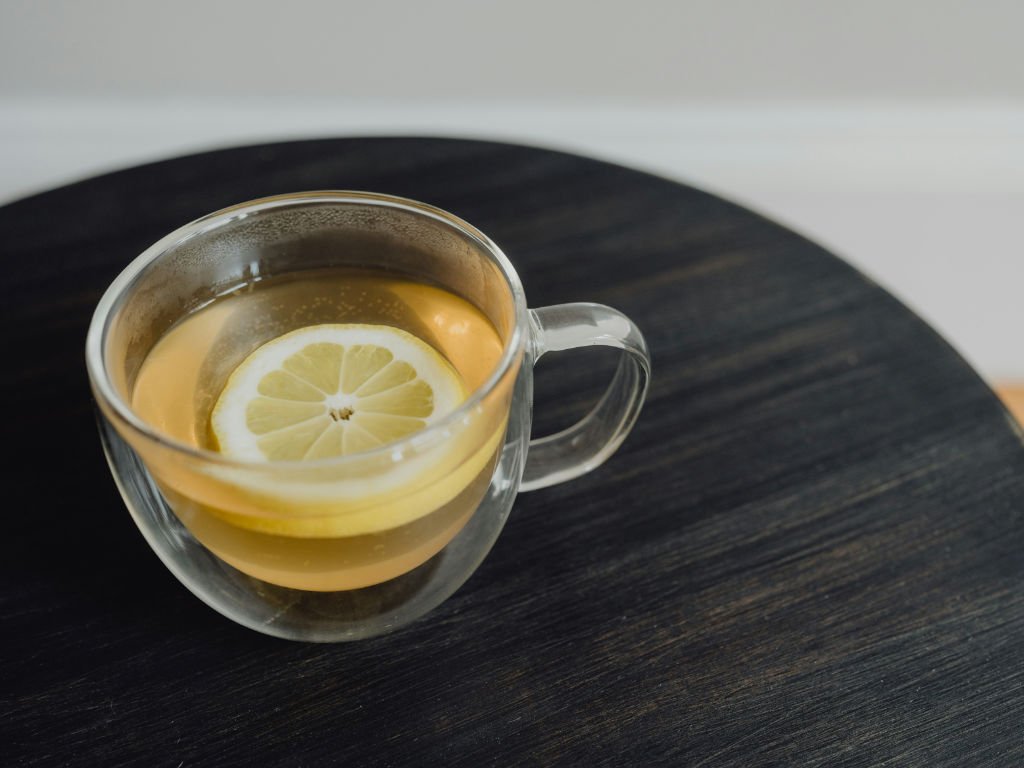
Sometimes the biggest barrier to focus isn’t lack of energy – it’s too much mental noise. That’s where lemon balm shines. This member of the mint family is particularly effective at reducing cortisol levels while simultaneously enhancing cognitive performance.
Lemon balm contains compounds that modulate GABA receptors in the brain, promoting a sense of calm without drowsiness. This makes it perfect for situations where you need to think clearly under pressure or when anxiety is interfering with your concentration.
Studies have shown that lemon balm can improve both accuracy and speed in cognitive tasks, making it an excellent choice for students, professionals, or anyone dealing with demanding mental work.
How to Prepare These Brain-Boosting Teas
Getting the most out of your herbal teas for focus isn’t just about choosing the right herbs – preparation matters too. Here’s how to extract maximum cognitive benefits from each tea:
Ginkgo Biloba: Use about one teaspoon of dried leaves per cup of water. Heat your water to just below boiling (around 200°F) and steep for 5-7 minutes. Boiling water can destroy some of the delicate compounds, so don’t rush this step.
Rosemary: Fresh is fantastic, but dried works too. Use a few sprigs of fresh rosemary or a teaspoon of dried leaves. Steep in hot (not boiling) water for about 5 minutes. The key is preserving those aromatic oils that make rosemary so effective.
Peppermint: Fresh leaves give the best flavor and potency. Use about 10-12 fresh leaves or one teaspoon of dried peppermint per cup. Steep for 3-5 minutes – longer can make it too strong. A squeeze of lemon and a touch of honey can enhance both taste and cognitive benefits.
Green Tea: This one’s finicky but worth the effort. Use water that’s around 176°F (80°C) and steep for only 2-3 minutes. This preserves the L-theanine and prevents the tea from becoming bitter. If you’re using tea bags, follow the same temperature guidelines.
Lemon Balm: Use about one tablespoon of fresh leaves or one teaspoon of dried per cup. Steep for 5-10 minutes to extract all those calming compounds. It blends beautifully with lavender if you want extra relaxation benefits.
Creating Your Daily Focus Ritual
The real magic happens when you make these teas part of your daily routine. I’ve found that timing matters just as much as preparation. Here’s what works for many people:
Morning Focus Blend: Start with green tea for that gentle caffeine boost with L-theanine balance. It’s perfect for easing into your workday without the coffee crash.
Mid-Morning Clarity: Switch to rosemary tea when you need to tackle complex tasks that require sharp memory and attention to detail.
Afternoon Reset: When that 3 PM slump hits, peppermint tea can provide the refresh you need without interfering with nighttime sleep.
Stressful Situations: Keep lemon balm tea on hand for high-pressure moments when you need to stay calm and focused.
Long-term Brain Health: Incorporate ginkgo biloba tea into your routine 3-4 times per week for cumulative cognitive benefits.
What Does Science Say About Herbal Teas and Cognitive Function?
The research backing herbal teas for focus is pretty compelling. A comprehensive review published in the journal Nutrients examined the cognitive effects of various herbal teas and found significant improvements in memory, attention, and executive function across multiple studies.
Another research study specifically looked at the neuroprotective effects of tea compounds and found that regular tea consumption was associated with better cognitive performance and reduced risk of cognitive decline in older adults.
What’s particularly interesting is that these benefits seem to compound over time. While you might notice immediate effects from certain teas (like the alertness from peppermint), the long-term brain-protective benefits develop with consistent use.
Beyond the Cup: Lifestyle Factors That Enhance Tea Benefits
While herbal teas for focus are powerful on their own, they work best as part of a holistic approach to cognitive health. Here are some complementary strategies that can amplify their effects:
Hydration is Key: Your brain is about 75% water, so even mild dehydration can significantly impact cognitive function. The good news is that herbal teas contribute to your daily fluid intake while providing additional benefits.
Nutrient Synergy: Certain foods can enhance the absorption and effectiveness of tea compounds. For example, a small amount of healthy fat (like from nuts or seeds) can improve the absorption of fat-soluble compounds in your tea. Speaking of nutrition, incorporating superfoods for brain power into your diet can work synergistically with your tea routine.
Timing with Sleep: Many of these herbs also support better sleep quality, which is crucial for memory consolidation and next-day focus. Just be mindful of caffeine timing – stick to green tea in the morning and early afternoon. If you’re struggling with sleep, you might want to explore natural sleep aids to complement your tea regimen.
Stress Management: Since chronic stress is one of the biggest enemies of cognitive function, the stress-reducing properties of teas like lemon balm provide both immediate and long-term benefits. For additional stress-busting techniques, check out these proven mental health strategies.
Potential Side Effects and Considerations
Let’s be real – just because something is natural doesn’t mean it’s without considerations. Most herbal teas for focus are generally safe for healthy adults, but there are a few things to keep in mind:
Medication Interactions: Ginkgo biloba can interact with blood thinners, so check with your healthcare provider if you’re on any medications. Green tea can also affect iron absorption, so if you have iron deficiency, time your tea consumption away from iron-rich meals.
Pregnancy and Nursing: Some herbs aren’t recommended during pregnancy or breastfeeding. When in doubt, stick to small amounts of well-researched options like green tea and peppermint.
Individual Sensitivity: Everyone’s biochemistry is different. Start with small amounts and pay attention to how your body responds. Some people are more sensitive to caffeine, while others might find certain herbs too stimulating or too sedating.
Building Your Personal Tea Blending Strategy
Once you’ve experimented with individual teas, you might want to create your own focus-enhancing blends. This is where things get fun and personalized to your specific needs.
The Student Blend: Combine rosemary and green tea for enhanced memory retention and sustained concentration during study sessions.
The Creative Flow: Mix peppermint with lemon balm for clear-headed creativity without anxiety or mental blocks.
The Executive Focus: Blend ginkgo biloba with a small amount of green tea for sharp decision-making and strategic thinking.
Remember, blending is both an art and a science. Start with equal parts of your chosen herbs and adjust based on taste and effects. Keep notes on what works best for different situations.
Enhancing Your Tea Experience
The ritual of preparing and drinking tea can be just as beneficial as the tea itself. Taking 5-10 minutes to mindfully prepare your brew creates a natural break that helps reset your mental state. This practice aligns beautifully with mindfulness techniques that can further enhance your mental clarity.
Consider investing in quality tea accessories – a good strainer, a temperature-controlled kettle, or even a small tea ceremony set. The act of slowing down and being present with your tea preparation can enhance its focus-boosting effects.
Flavor Enhancement Tips:
- Add a slice of fresh ginger to boost circulation and add warmth
- A touch of raw honey provides natural sugars for brain fuel
- Lemon not only tastes great but adds vitamin C and enhances iron absorption
- Fresh mint leaves can amplify the cognitive benefits of any tea
Frequently Asked Questions About Herbal Teas for Focus
How long does it take to notice cognitive benefits from herbal teas?
Most people notice immediate effects within 30-60 minutes of drinking certain teas like peppermint or green tea. However, the cumulative benefits for memory and long-term cognitive health typically develop over 4-6 weeks of consistent use.
Can I drink multiple focus-enhancing teas in one day?
Absolutely! In fact, rotating between different teas throughout the day can provide varied benefits. Just be mindful of your total caffeine intake if you’re including green tea in the mix.
Are loose-leaf teas better than tea bags for cognitive benefits?
Generally yes, loose-leaf teas tend to contain higher concentrations of active compounds and are less processed. However, high-quality tea bags can still be effective – just check the ingredient list to ensure you’re getting pure herbs.
What’s the best time of day to drink focus-enhancing teas?
This depends on your goals and the specific tea. Green tea is great in the morning for sustained energy, while lemon balm works well when you’re feeling stressed or overwhelmed. Peppermint is perfect for that afternoon mental refresh.
Can children drink herbal teas for focus?
Some herbal teas like chamomile and peppermint are generally safe for children in small amounts, but it’s best to consult with a pediatrician before giving any herbal supplements or teas to kids, especially for cognitive enhancement purposes.
Maximizing Long-term Cognitive Benefits
The real power of herbal teas for focus lies in their long-term neuroprotective effects. While that immediate mental clarity is great, the antioxidants and anti-inflammatory compounds in these teas are working behind the scenes to protect your brain for the future.
Consider keeping a simple log of your tea consumption and cognitive performance. Note which teas you drink on which days and how your mental clarity, energy levels, and productivity feel. Over time, you’ll start to see patterns that can help you optimize your personal tea protocol.
Seasonal Considerations: Your cognitive needs might change with the seasons. You might crave more warming, grounding teas like rosemary in winter, while lighter, more refreshing options like peppermint might appeal during summer months.
Making It Sustainable: Building Lasting Habits
The key to getting lasting benefits from herbal teas for focus is making them a sustainable part of your routine. Start small – maybe replace one cup of coffee per day with an herbal alternative. Once that feels natural, you can gradually expand your repertoire.
Practical Tips for Success:
- Keep tea supplies at both home and work
- Invest in a good travel mug for tea on-the-go
- Set phone reminders for your optimal tea times
- Stock up on your favorites so you never run out
- Experiment with seasonal variations to keep things interesting
Remember, consistency beats perfection. Even if you miss a day here and there, the cumulative effects of regular herbal tea consumption will still benefit your cognitive health.
The journey to better focus and mental clarity doesn’t have to be complicated or expensive. Sometimes the most effective solutions are the simplest ones – like taking a few minutes to brew a cup of brain-boosting tea and giving yourself permission to pause and reset.
Whether you’re a student cramming for exams, a professional tackling complex projects, or someone simply looking to stay sharp as you age, herbal teas for focus offer a gentle, natural way to support your cognitive goals. The combination of immediate benefits and long-term brain protection makes them a valuable addition to any wellness routine.
As you explore these natural remedies, remember that everyone’s response is unique. What works amazingly for your friend might be different from what works best for you. Give yourself time to experiment, pay attention to your body’s signals, and most importantly, enjoy the process of discovering your perfect focus-enhancing brew.
Ready to get started? Pick one tea that appeals to you most and commit to trying it for a week. Your brain – and your productivity – might just thank you for it.


